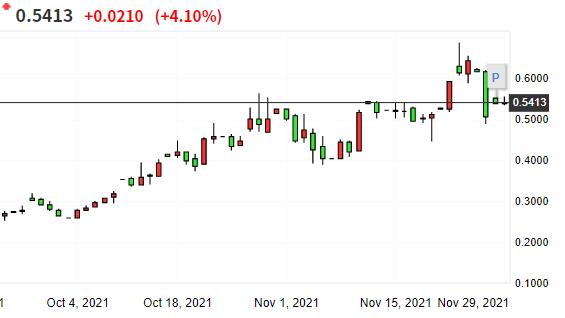Will Omicron affect the Fed's rate hike pace?

The World Health Organization (WHO) preliminarily determined that due to the high mutation of Omicron, its infectivity may exceed the previous Delta (Delta) mutant strain, and the existing vaccines may have limited protection.
But overall, the new variant of the new coronavirus, Omicron, still lacks data in terms of fatality and severe illness rates. Market analysis believes that in view of the lack of data on the virus for further analysis, the next 2-4 weeks will be a critical period.
However, the market does not seem to have much patience, nor do governments. Although the WHO held an emergency meeting on Friday, it also warned countries around the world not to overreact and act hastily against the new variant Omicron. However, countries including the United States, Israel, Japan, the United Kingdom, Russia, Canada, Ireland and other countries have issued travel bans.
What needs to be focused on is that in addition to the setbacks in risky assets, the virus has also caused the yields of U.S. Treasury bonds, which are more sensitive to changes in Fed interest rates, to drop sharply. The two-year U.S. Treasury yield fell by 14.2 basis points on Friday to 2020. The biggest drop since March, to 0.502%.
So, in this context, will the new variants of the virus affect the Fed's interest rate hike? The answer is yes.
The market has withdrawn expectations that the Fed may accelerate Taper. Previously, the market believed that the Fed is expected to raise interest rates in June next year, and the current time point has also been postponed to September. According to the Federal Reserve Interest Rate Observer of Investing.com, the interest rate hike forecast for June 2022 has fallen from 68.2% before the outbreak of Omicron last week to 64%. The forecast on the previous day was even lower at only 62%. %about.
In addition, according to the FedWatch tool of the Chicago Mercantile Exchange (CME), money market traders now expect the possibility of the Federal Open Market Committee (FOMC) of the Federal Open Market Committee (FOMC) to raise interest rates by at least 25 basis points at the June meeting of 58.5%, which is lower than Wednesday’s U.S. Thanksgiving 82.1% before the holiday, and 67% before US President Biden nominated Powell for re-election a week ago. Traders also predict that the probability of a rate hike in the July meeting is 69%, lower than Wednesday's 88% and last week's 77.2%. The possibility of tightening policy in September is 79.7%, which is lower than the previous 94.5% and 88.1%.
There is no doubt that if new variants of the new coronavirus cause delays in the supply chain, it will make the Fed’s task more difficult.
This year’s FOMC voting committee and Atlanta Fed President Raphael Bostic pointed out on Friday that Omicron may delay the recovery of the supply chain, and if the supply problem lasts longer, inflation will rise. The longer it will be, the Fed needs to act as soon as possible. The Fed will not let inflation run out of control, because measures will be taken soon.
Bostic clearly stated, “I am very willing to accelerate the pace of asset reduction. If the economic momentum can continue as in the past few months, the beginning of the second quarter and the end of the first quarter of 2022 are reasonable time points to complete the reduction.”
If Omicron and Delta viruses prove to be not much different, then the new variant virus may slow down economic development to a certain extent, but it will not be too harmful. At this stage, the economy still has strong momentum, which is expected to support the market through this wave.
UBS chief economist Arend Kapteyn said that if the new variant Omicron epidemic starts to spread, confidence in the improvement of the US job market may fade, but it is too early to measure its impact. However, "the market has gone too far in terms of pricing the prospect of a shortened stimulus window and the prospect of multiple interest rate hikes next year."
This week the market will need to focus on the hearings of Fed Chairman Powell and U.S. Treasury Secretary Yellen in the Senate Banking Committee. At that time, the market is expected to receive further comments from the Fed and the Treasury Department on the Omicron virus and its potential impact.



